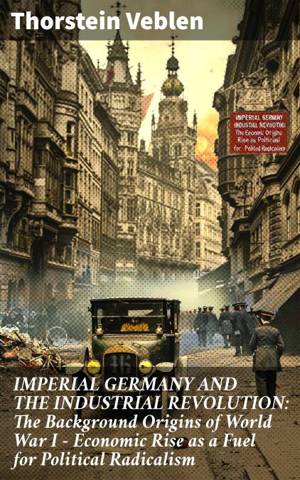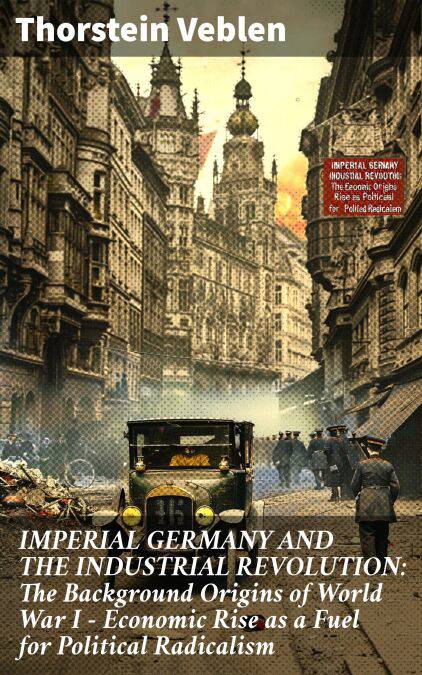
- Afhalen na 1 uur in een winkel met voorraad
- Gratis thuislevering in België vanaf € 30
- Ruim aanbod met 7 miljoen producten
- Afhalen na 1 uur in een winkel met voorraad
- Gratis thuislevering in België vanaf € 30
- Ruim aanbod met 7 miljoen producten
Zoeken
IMPERIAL GERMANY AND THE INDUSTRIAL REVOLUTION: The Background Origins of World War I - Economic Rise as a Fuel for Political Radicalism E-BOOK
Economic Rise and Political Radicalism in Imperial Germany
Thorstein Veblen
E-book | Engels
€ 0,49
Omschrijving
In "IMPERIAL GERMANY AND THE INDUSTRIAL REVOLUTION: The Background Origins of World War I - Economic Rise as a Fuel for Political Radicalism," Thorstein Veblen provides a penetrating examination of the sociopolitical consequences of Germany's rapid industrialization in the late 19th century. Utilizing a distinctive combination of economic analysis and social critique, Veblen delves into how the unprecedented economic growth in Germany not only transformed its social fabric but also sowed the seeds of political radicalism that would contribute to the tensions igniting World War I. His incisive prose illuminates the nexus between economic factors and political upheaval, situated within the broader context of European imperialism and industrial competition. Veblen, an influential economist and social critic known for his critical views on capitalism and consumer culture, draws from both his expertise in economics and his profound understanding of social dynamics. His own experiences as an immigrant and his academic background at prestigious institutions informed his perspectives on the interplay between economic structures and social behaviors, ultimately leading him to explore how these dynamics precipitated nationalistic fervor in pre-war Germany. This book is essential for anyone interested in understanding the complex relationship between economic advancement and political instability. Veblen's thoughtful analysis ensures readers gain insight into how the forces of industrial growth contributed to one of history's most catastrophic conflicts, making it a significant read for students of history, economics, and political science alike.
Specificaties
Betrokkenen
- Auteur(s):
- Uitgeverij:
Inhoud
- Aantal bladzijden:
- 325
- Taal:
- Engels
Eigenschappen
- Productcode (EAN):
- 8596547806592
- Verschijningsdatum:
- 9/01/2024
- Uitvoering:
- E-book
- Beveiligd met:
- Digital watermarking
- Formaat:
- ePub

Alleen bij Standaard Boekhandel
Beoordelingen
We publiceren alleen reviews die voldoen aan de voorwaarden voor reviews. Bekijk onze voorwaarden voor reviews.











